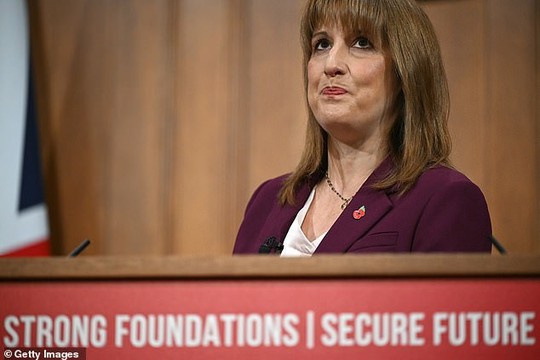A Chancellor of the Exchequer Rachel Reeves
Since Labour took office, the UK Government has borrowed around £92 billion more than forecast. Rachel Reeves says she plans to “reduce the debt.” But the hard numbers tell a very different story.
Before the election, the Office for Budget Responsibility projected that from August 2024 (after Labour took office) to March 2025, the government would borrow £40.6 billion. It also forecast a further £62 billion for the first six months of 2025/26, giving a combined forecast of around £103 billion in borrowing over the 14 months from August 2024 to September 2025.
The reality could not be more different. From August 2024 to March 2025, the UK Government actually borrowed £94.6 billion. And in the first six months of 2025/26, it borrowed another £99.8 billion.
Together, that’s £194 billion — some £92 billion more than forecast.
It’s not reducing debt — it’s accelerating it.
Inflation and Interest Costs Are Driving the Crisis
When Labour entered office, the Treasury was already under pressure — but the Government’s own decisions have made a bad situation worse.
Around a quarter of the UK’s £2.9 trillion debt is linked to inflation through the Retail Prices Index (RPI). That means every extra point of inflation directly pushes up the cost of servicing Britain’s debt.
And inflation here has stayed higher than in comparable countries such as France and Germany, where price growth has fallen much closer to pre-pandemic levels.
In the UK, persistently higher inflation continues to feed through into rising debt-interest payments — and therefore higher borrowing.
Labour’s Policy Choices Made It Worse
Much of that persistence is linked to policy choices made by the Labour Government itself. The rise in employer National Insurance — the “jobs tax” — has pushed up labour costs and slowed hiring, making it harder for businesses to absorb price pressures.
And while not the main cause of the current borrowing surge, the ongoing drive for Net Zero spending and subsidies has added tens of billions in new public-sector commitments — locking in higher long-term costs that will make it even harder to bring debt down in the years ahead.
Rather than tightening spending, the October 2024 Budget increased departmental budgets, expanded public-sector pay, and loosened fiscal policy across the board.
The OBR described it as a “net fiscal loosening” — in plain English, the Government chose to spend more, not less.
Tax receipts have underperformed. Corporate profits have weakened. And debt-interest costs have exploded.
The result: borrowing has overshot by £92 billion since the General Election, versus the pre-election forecast.
The apparent fall in the debt-to-GDP ratio, from 97 % to 95.7 %, only happens because the OBR assumes nominal GDP keeps rising faster than borrowing.
If growth weakens or interest rates stay high, that ratio goes straight back up.
The Consequences
Every extra pound borrowed feeds a bigger debt-interest bill. Britain now spends more on servicing debt than on defence or policing combined — over £100 billion a year.
That leaves little room to invest, cut taxes, or repair collapsing public services. And the longer the borrowing continues, the more it traps the economy in a high-tax, low-growth cycle.
The Bottom Line
With another Budget due later this month, Rachel Reeves faces a credibility crisis of her own making. She promised to “reduce the debt.” Instead, borrowing has exploded, debt keeps rising, and the public finances are in worse shape than before the election.
The OBR now expects Britain to keep borrowing tens of billions every year through the end of the decade, pushing total debt beyond £3.3 trillion. That’s not discipline — it’s drift.
Rather than tackle the real issue — out-of-control government spending — Reeves is preparing to raid hard-working families for more taxes in the upcoming Budget.
It’s a move that will cripple an already weak economy and punish the very people already struggling with higher prices, mortgages, and bills.
If she were working for a private-sector company, she’d be out of a job — another addition to Britain’s growing unemployment figures.
And if this level of economic mismanagement is what Rachel Reeves calls “fixing the foundations,” then I’m just glad she’s not in charge of building me a new house.
read more in our Telegram-channel https://t.me/The_International_Affairs

 10:11 11.11.2025 •
10:11 11.11.2025 •























